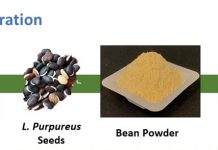
Metal oxide nanoparticles, microscopic additives used in food production, have been found to potentially affect gut health, according to a study conducted by scientists from Binghamton University and Cornell University.
What are Metal Oxide Nanoparticles?
Metal oxide nanoparticles are incredibly small particles added to food for various reasons.
For example, titanium dioxide can enhance the whiteness and brightness of food, while silicon dioxide can prevent food from clumping.
Iron oxide helps maintain the red color in meats, and zinc oxide, with its antimicrobial properties, is used as a preservative.
The Research
In order to understand the effects of these nanoparticles on the gut, researchers utilized chickens in their study due to the significant overlap between the bacteria in a chicken’s gut and those in the human digestive system.
The team injected five different nanoparticles into chicken eggs and studied the gene expression, types of bacteria, and structure of the small intestine in the chicks after they hatched.
The Findings
The study found that silicon dioxide and titanium dioxide nanoparticles appeared to disrupt the normal functioning of the chickens’ intestines, disturb the balance of bacteria, and impact the chickens’ ability to absorb minerals.
Conversely, certain nanoparticles demonstrated neutral or even positive effects. Zinc oxide seemed to support intestinal development.
Iron oxide could potentially be used to fortify food with iron, but it could also alter intestinal function and impact overall health.
What Does This Mean for Our Food Choices?
These findings do not necessarily mean that we should entirely avoid foods containing nanoparticles. Instead, understanding the potential impact of these nanoparticles on our gut health can inform better food choices.
As Professor Gretchen Mahler puts it: “We’re eating these things, so it’s important to consider what some of the more subtle effects could be.”
The research is part of an ongoing effort to understand the potential impacts of these minuscule food additives on our health.
Thus, it’s crucial to be aware of what’s in our food—there might be more to it than meets the eye.
The study was published in the journal Antioxidants.
Copyright © 2023 Scientific Diet. All rights reserved.








